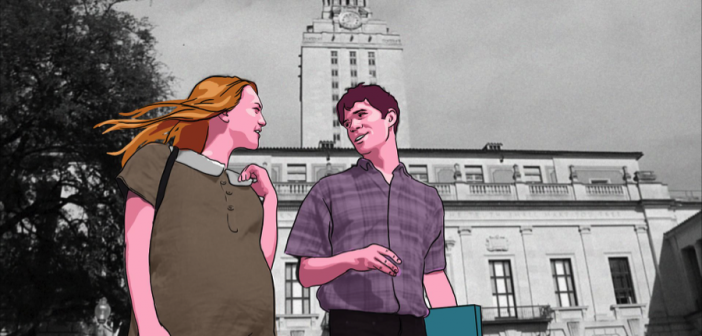This Documentary uses innovative visual and aural measures to fully clarify the horrors of a mass shooting. Its strong message is terrifying and full of urgency, and definitely hard to ignore.
-
10
According to the research group, Everytown, there have been over 200 school shootings in the United States since 2013, which averages out to about one per week. In the feature-length animated documentary Tower, director Keith Maitland (The Eyes of Me) confronts this reality by creating this beautifully urgent testimony of the first mass university shooting, the 1966 University of Texas Massacre. From its first moments to its last, this film is a heart wrenching depiction of horrific violence and how regular people band together to form hope. In our particular political landscape, this film seems destined to achieve great success.
One of the most palpable distinctions of this documentary is its unique animated visuals, which allow Maitland to delve into the subject matter much more deeply than if he just used archive footage or staged re-enactments. In going about this difficult method, Maitland has made a film in which almost every shot is both beautiful and meaningful. When someone is shot, the screen floods with red psychedelic visuals, which both tells us a story about the time period, but also helps the audience understand the true feeling of being shot. The use of archive footage mixed with animation creates a terrifying and thrilling feeling of realism. Whenever the shooter is mentioned, from atop the ivory tower of the University of Texas, it is hard to ignore the fear of being shot by someone you cannot see. This innovative process creates a film that is both realistic and incredibly explorative of the event.
Maitland’s use of sound design is also to be commended. The sound-mixing of archive audio footage and acted dialogue creates a further mix of realism and fear among the audience. However, most interesting of all is use of music in the documentary, which time-sets the documentary to the late 60s, but also depicts the massacre as just a slight abnormality on what was supposed to be a normal day. In one moment, a lazy country song plays as a police officer skips rocks, unaware of the horrors to come. The idea of a regular day becoming the event of a traumatic massacre is incredibly chilling.
The decision to focus on such an old tragedy is a unique one, but Maitland’s direction gives it deep meaning. At one point, he focuses on two boys who think the entire shooting is a joke or adventure, but are awakened to the full extent of the massacre. This naivety of the first mass school shooting is highlighted throughout the film, and only forces us to confront the fact that mass shootings are so common in the American consciousness, there is no question of if there will be another; it is when? Maitland clearly has important things to say with this film, and he makes some powerful and unique decisions to emphasise them. For example, there is no focus on the shooter. This is no true crime analysis of what drives someone to shoot, but a chilling testimony by the victims. As an audience, we must listen and we are made to question the extent of our own moral values – would you attempt save a stranger’s life if it meant you would likely die? The film sympathises with any answer. Terrible events takes the control out of your hands – there is no moral high ground, as much as we would like to believe in heroism.
Ultimately, Tower is excellent documentary full of gripping visuals and sounds that will make you think about the nature of the school shooting, and how disturbing it is that they occur semi-regularly in the United States.
Tower (2017), directed by Keith Maitland, is distributed in the UK by Picturehouse Docs. Certificate TBC.




